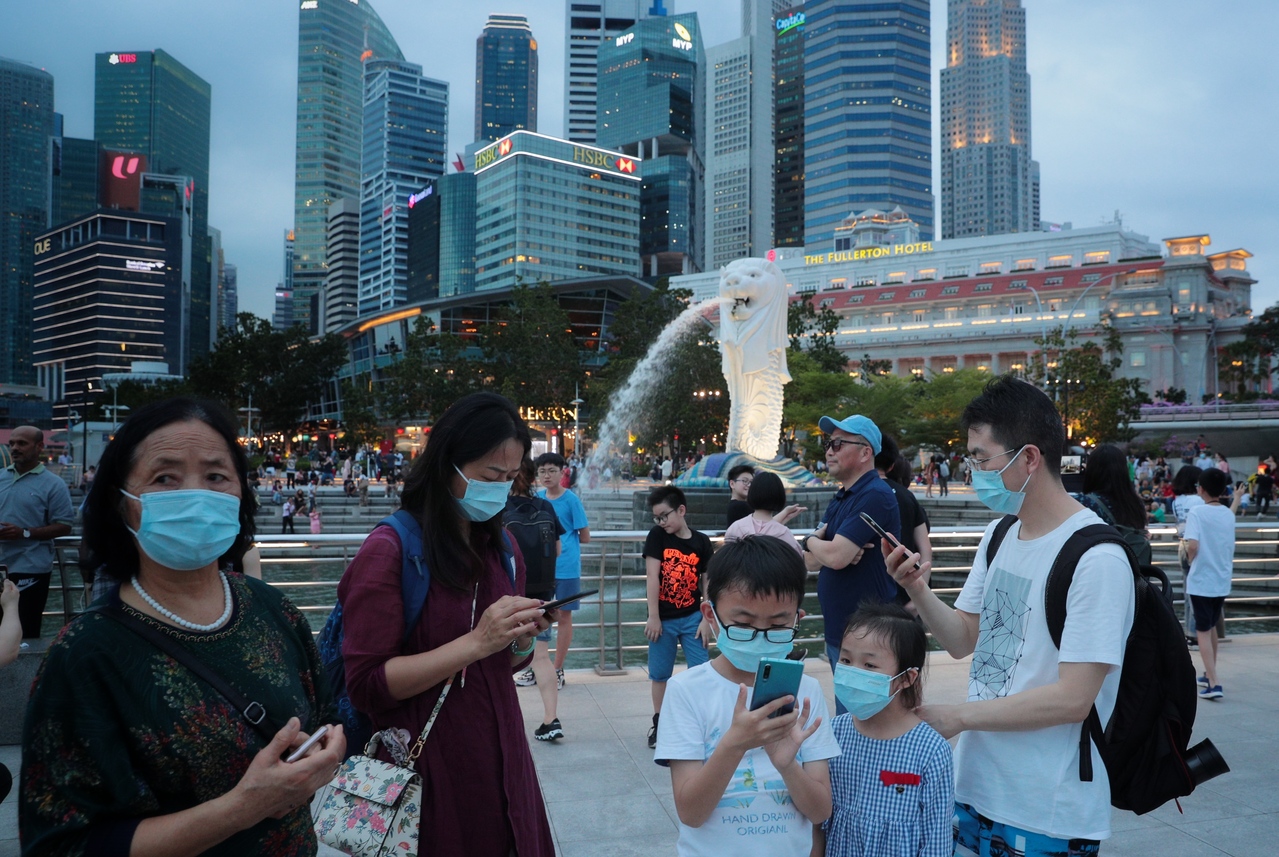Singapore economy could be headed for its worst-ever contraction this year
Sign up now: Get ST's newsletters delivered to your inbox

The air transport, accommodation, food services and retail trade sectors shrank on the back of a sharp decline in tourist arrivals.
PHOTO: ST FILE
Follow topic:
SINGAPORE - Singapore’s economy looks headed for its worst-ever contraction and first full-year recession in about two decades amid mounting border controls and lockdowns around the world from the coronavirus pandemic.
The grim outlook comes as the Ministry of Trade and Industry (MTI) on Thursday (March 26) slashed its 2020 growth forecast to a range of -4.0 to -1.0 per cent, from an earlier estimate of -0.5 per cent to 1.5 per cent. The last time Singapore registered a full-year contraction of its economy was in 2001 during the Dot.com Bust when growth fell by 1 per cent.
MTI also said its advance estimates showed the economy contracted by 2.2 per cent year on year in the first quarter of 2020, worse than economists had expected.
"In economic terms alone, this will likely be the worst economic contraction since independence," Deputy Prime Minister Heng Swee Keat said later on Thursday in Parliament as he unveiled a $48.4 billion Supplementary Budget of support measures for businesses, workers and families.
Commenting on the advance GDP data, DBS senior economist Irvin Seah said Singapore was in for "a very deep recession". He noted that the 2.2 per cent first-quarter contraction is the worst year-on-year decline since the global financial crisis.
On a quarter-on-quarter annualised basis, the economy shrank by 10.6 per cent in the January to March period, a magnitude unseen since the third quarter of 2010 and a sharp pullback from 0.6 per cent growth in the previous quarter.
Mr Seah said he is slashing his 2020 GDP growth forecast down to -2.8 per cent from -0.5 per cent in light of Singapore's latest coronavirus measures, as well as risks to the global economy. This will be deeper than the recession during the Asian Financial Crisis when the economy contracted by 2.2 per cent.
GDP growth figures for the next two quarters will likely be even deeper than the first quarter, with declines of more than 3.5 per cent, he added.
For the first quarter, the construction sector led the decline with a contraction of 4.3 per cent year on year, followed by the services (-3.1 per cent) and manufacturing (-0.5 per cent).
"With the services sector accounting for about the two-thirds of GDP and employment, the main drag is still services," said Mr Seah. "If the services sector falls, the economy follows. Even an improvement in the manufacturing sector in the coming quarters will not be enough to offset the drag.
"This will be a services-led full year recession. And the impact to jobs will be significant," he said.
The first quarter performance reversed the 1.0 per cent growth in the last three months of 2019 and was far deeper than the worst hit during the Sars (severe acute respiratory syndrome) period when the economy contracted by 0.3 per cent in the second quarter of 2003.
Fitch Solutions Country Risk and Industry Research, which like DBS cut it's full-year growth forecast to -2.8 per cent, said: "We expect the government to mount a determined policy response, with the possibility of borrowing against past reserves." But risks are still weighted to the downside, given the possibility of a worsening outbreak in Singapore and the risk of the global pandemic not being contained within a quarter, it added.
The MTI said the 2020 outlook had sharply deteriorated after the virus outbreak rapidly escalated beyond China to many other countries, including the United States, Britain, France and Germany.
With the outbreak becoming more widespread, Singapore has tightened its border controls significantly since February to reduce the importation of the disease.
To reduce the risk of community spread, safe distancing measures such as the cancellation of all events and mass gatherings and the physical separation of patrons at public places have been implemented.
All of these factors have heavily weighed on domestic consumption and external demand for goods and services, said the MTI.
The MTI said the manufacturing sector was weighed down by output declines in the electronics and chemicals clusters, which more than offset output expansions in the biomedical manufacturing and precision engineering clusters.
The weakness of the sector likely reflects a fall in external demand as global economic activity has slowed due to the ongoing Covid-19 pandemic, it said.
The construction sector's 4.3 per cent contraction was a reversal from the 4.3 per cent growth in the previous quarter.
The services producing industries contracted by 3.1 per cent on a year-on-year basis in the first quarter, reversing the 1.5 per cent growth in the fourth quarter of last year.
The advance GDP estimates for the first quarter were computed largely from data in the first two months of the quarter.
The MTI will release the preliminary GDP estimates for the first quarter, including performance by sectors, sources of growth, inflation, employment and productivity, in its Economic Survey of Singapore in May.

